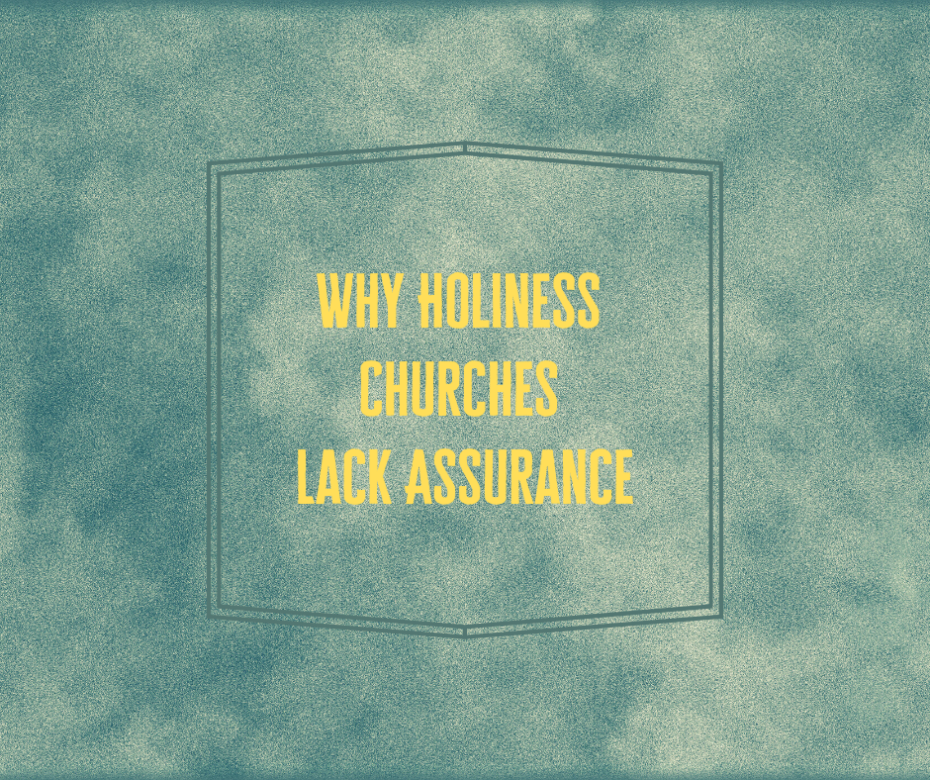If you’re in a Pentecostal or Holiness church, or if you’ve recently come out of one, you probably struggle with assurance of salvation. Why? Lyle Lange, a Lutheran theologian, explains:
The “holiness bodies” (such as Pentecostal, Church of the Nazarene, Church of God) look to special manifestations of the Spirit’s work in their lives to assure them of salvation. While we cannot generalize concerning the differing beliefs of these various church bodies, a common characteristic emerges. They base justification on the Christian’s life. The Christian life becomes the assurance of salvation rather than the life, death, and resurrection of Jesus Christ alone (Lange, Sanctification, 54).
Free Grace people regularly make this point, so it’s nice to hear someone else make it, too.
I appreciate that Lange sees assurance as an important issue. And I agree with him that the holiness traditions base both justification and assurance on your life. However, I must slightly disagree with Lange that assurance is therefore based on Christ’s life.
Why?
Lange says the assurance of salvation is “the life, death, and resurrection of Jesus Christ alone.” But that’s not exactly the answer, is it? After all, the Holiness people believe in Christ’s life, too. They, as much as anyone else, believe that Jesus lived and died and rose again. So why don’t they have assurance?
The problem is they do not believe what Jesus’ sinless life, substitutionary death, and resurrection from the dead made possible—the promise of everlasting life (John 3:16, 36). Holiness people reject that believers can have everlasting life for free, through a simple act of faith. And that’s why they lack assurance.
If you are in the Holiness tradition and lack assurance, don’t base justification or assurance on your life—base it on Christ’s promise, made possible by His life.


